Years ago, when I was preparing for intense Yoga and meditation programs, I had to refrain from eating garlic and onion daily. So, I looked closely at why I use garlic and onion in my dishes and the ways I can substitute those substances.
I used to add loads of garlic to my dishes, mainly for flavoring. So the solution to substitute garlic in cooking for me was primarily in spices. I will show you the way I do it shortly.
When it comes to the onion, the story is not so straightforward because there is a texture involved. So a combination of spices and vegetables with a similar texture is necessary. After some trial and error, I figured out for myself some solutions that allow me to create flavor-full texture-rich dishes and never miss an onion or garlic.
First, let’s look at how to substitute garlic, and then we will move to different onion substitutes.
Garlic Substitute
We profess love for the garlic because if it is the main spice used in a dish and if you remove it, the dish becomes flavorless and bland. But let’s say, the look and smell of your dish titillate your senses, and it’s bursting with flavor the second it touches your tongue. Would you miss garlic then? Truthfully, would you? More likely, the thought of garlic there or not would never cross your mind. You would just simply enjoy the meal, right? That’s what I witnessed many times, anyway.
I can see how it can be overwhelming when it comes to spices, and especially when you have not used much before. I’m a very busy person. Some days I wish I didn’t have to sleep because it always seems like days are flying by in seconds, and 24 hours aren’t enough to accomplish what I set myself to.
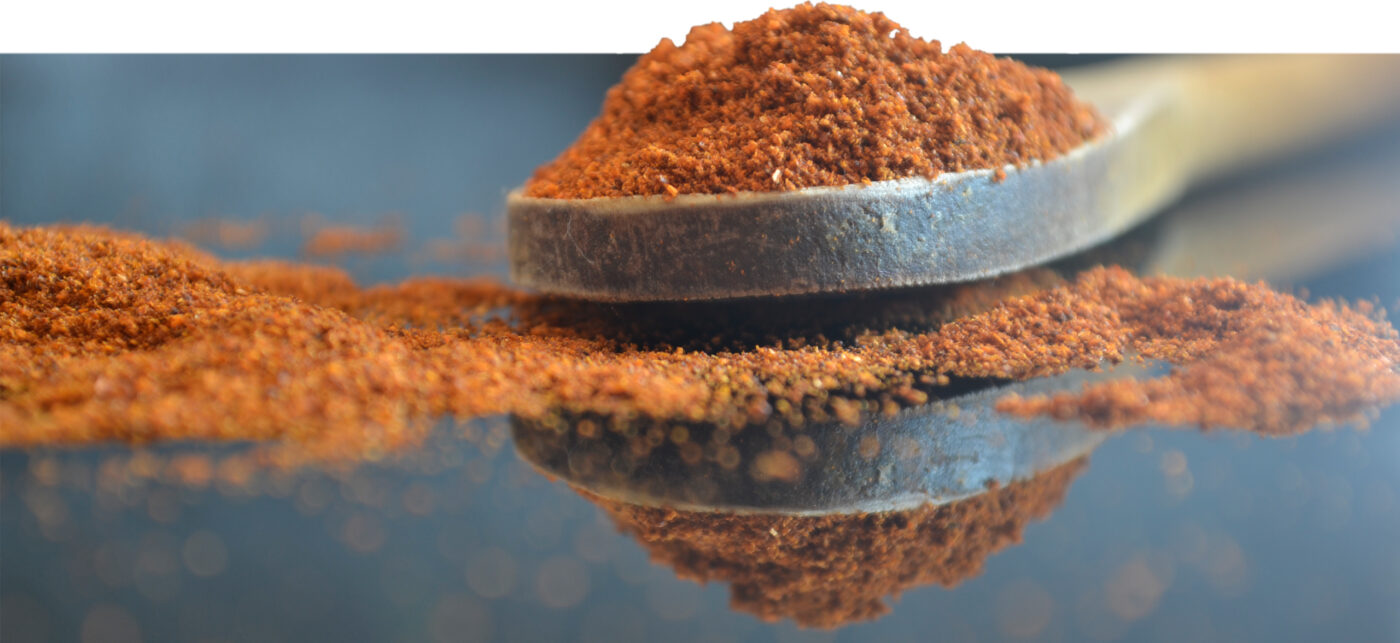
To save time and simplify the cooking process, I created these two spice mixes that are very easy and quick to do, and they can be used in almost any savory dish. For that reason, I’m calling them Universal Sattvic spice mix and Basic Savory Sattvic spice mix. Having these two spice blends at my disposal streamlines my cooking. Contrary to garlic, the use of these spices will not aggravate your system and will support the digestive processes.
After you are done with this article, you can check them out along with my Positive Pranic Must have spice blends video, to see how I make them, and for detailed recipes.
📝 FULL RECIPES HERE👇🏻
And this recipe is an example of how I incorporate the spice mix in a dish:
Onion Substitute
As to onion replacement. I want to share my five favorite vegetables I use in my daily cooking that made it easy for me to part with onions for good.
Substituting Onion with Celery
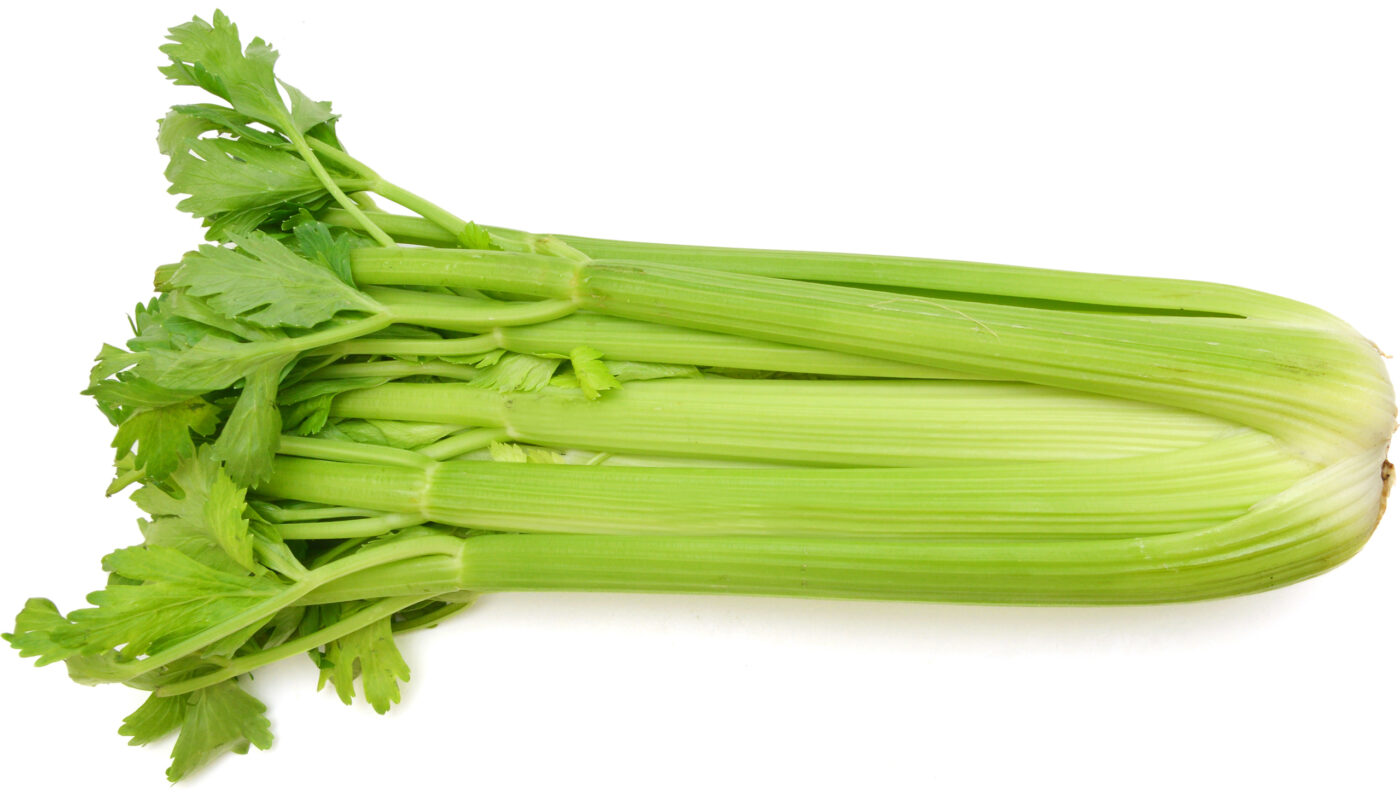
Finely cubed celery is a wonderful onion replacement in curries, soups, and stew dishes. I use it so much when I’m making grains like rice, quinoa, buckwheat, and the like.
Most often I like to sauté finely chopped celery first, and then incorporate it into hot dishes. But in some cases (certain curry recipes or soups) sautéing is not required.
And certainly, when it comes to salads and sandwich components, it works exceptionally well, adding crunch and freshness at the same time. For salads and toppings, more often, I slice it very thin (watch the video to see the way I do it)
The following recipe is an example of how I use celery to substitute onion in hot dishes. You can use the same method and replace quinoa with rice, millet, or other grains (be sure to soak your grains before cooking to increase bioavailability).
📝 🍽️ FULL Recipes 👇🏻
Substituting Onion with Napa Cabbage
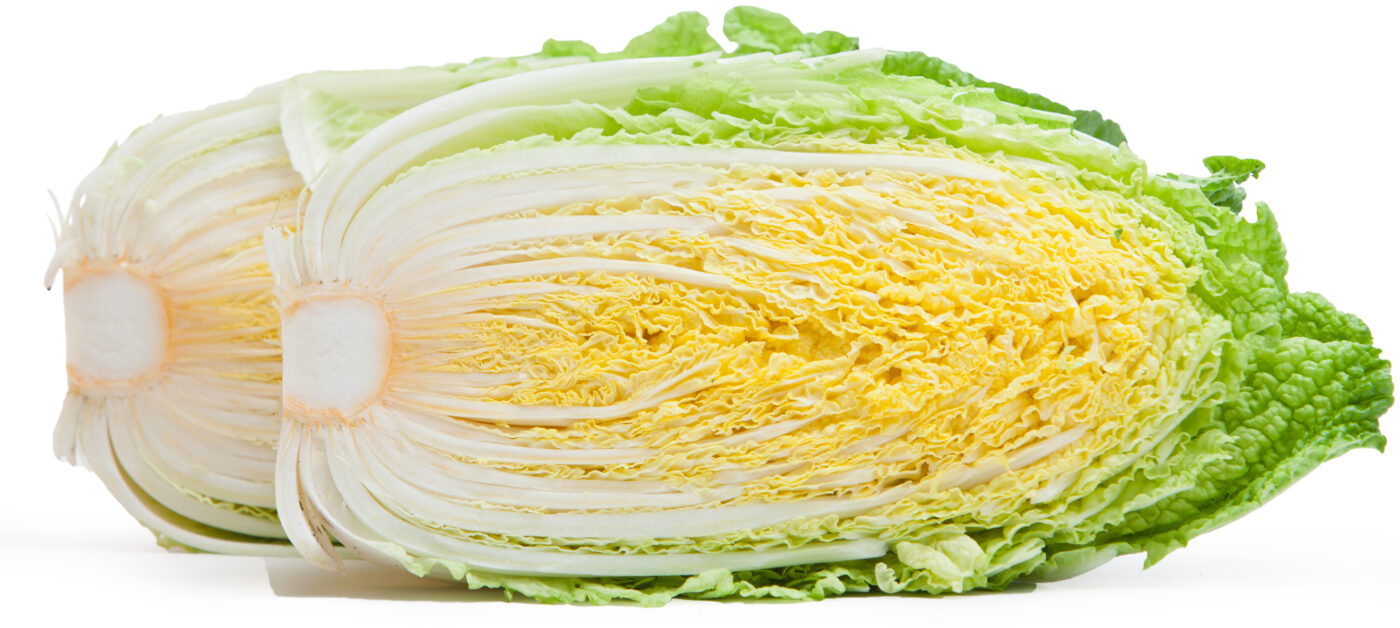
Napa Cabbage (also known as Chinese cabbage) is widely used in East Asian cuisine). Napa cabbage has a tinge of sulfury taste, slightly reminiscent of onion.
The white core of the Napa cabbage is firm, juicy, and crispy. It sautés and browns very well. It is an excellent onion substitute. Anywhere you need an onion, you can use it.
As to the cabbage’s green parts, you can make a scrumptious salad out of them. Sauté or steam with a splash of lemon and a pinch of salt will make a lovely addition to a side dish.
Substituting Onion with Fennel
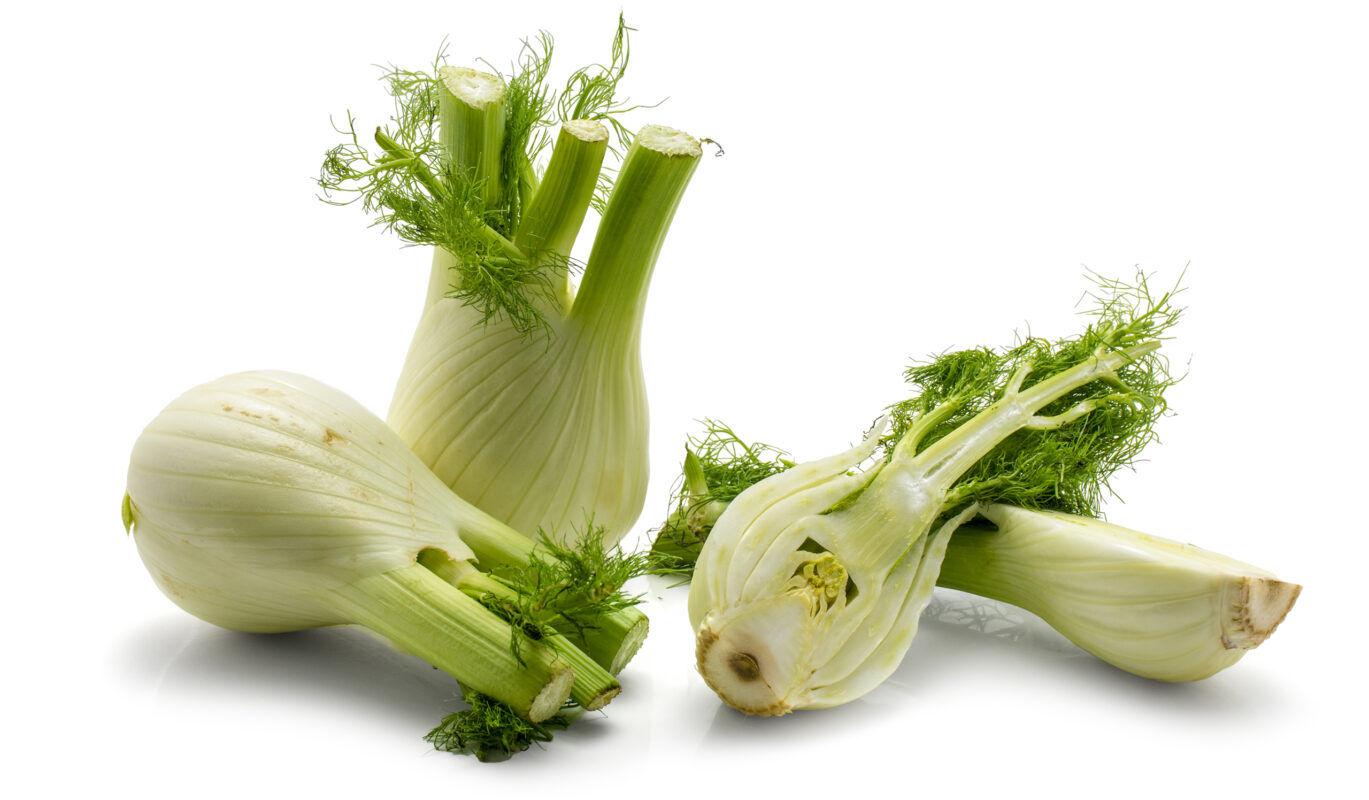
Fennel is a perennial herb that belongs to the carrot family. Fennel’s firm and juicy texture combines with a complex flavor profile with a mildly pungent taste with a hint of anise.
The fennel bulb, when braised or roasted, caramelizes well, turns golden brown and becomes silky in texture, just like an onion would. By cutting it in long thin strips, (watch me do it in the video), you can fool anyone into thinking that it is an onion. It totally fools your brain and satisfies your taste buds.
It serves well in all the hot dishes as an onion substitute but looks exceptionally convincing as garnish served on the top of veggie burgers, falafels, mashed potatoes, and the like. Thinly sliced braised Fennel incorporates well in flatbreads and savory pancakes.
Here is the way I do it. Slice the fennel bulb into thin slices. To the pan, add 2 tbsp of refined coconut oil (sesame seed or grapeseed oil), two heaping teaspoons of Basic savory sattvic spice mix (check the link in the description for the recipe, or see this video to watch the way I do it).
Warm up your spices, do not roast them, just warm them up a bit. Incorporate your chopped fennel, and mix well. Cover with the lid and let it go on medium heat for about 5-6 minutes, then add salt and let it simmer on medium-low heat until caramelized and becomes silky.
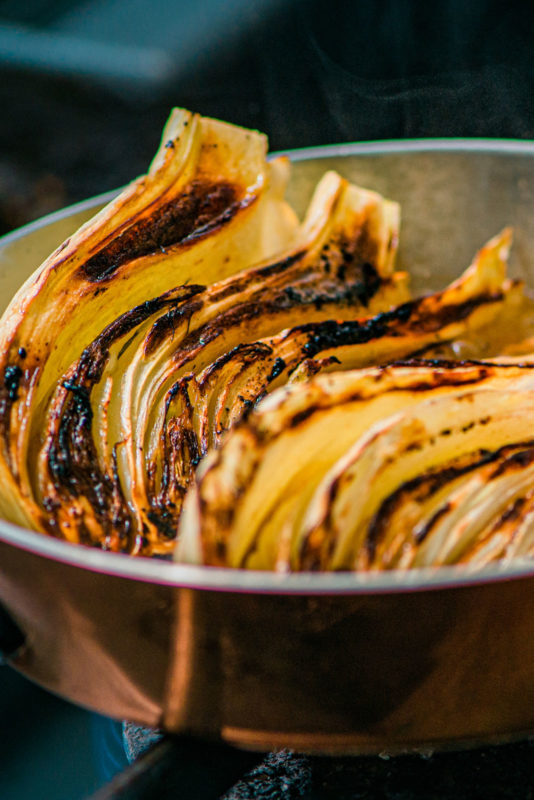
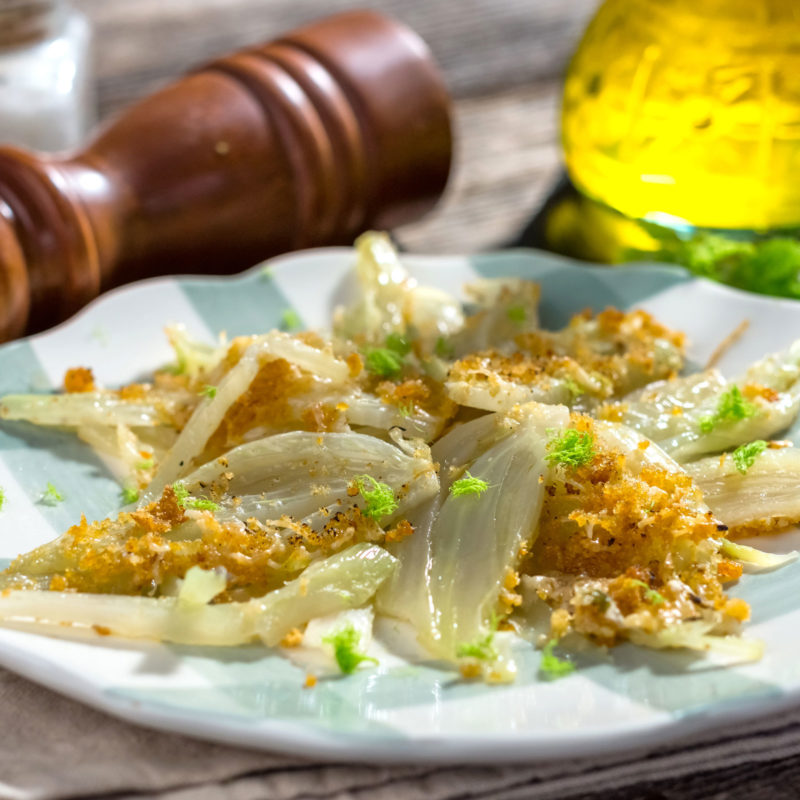
Green fennel stalks work well with rice, quinoa, barley, and other grains. I love to add them to couscous dishes and legumes. I just chop them to fine ringlets and add them towards the end of the cooking process.
And with freshly chopped fennel bulb, you can substitute onion in all the salads or toppings.
As to the green fennel parts, I love to use them fresh in savory as well as sweet dishes to add a pop of bitter-sweet taste. Fresh fennel greens work very well as an addition to sauces, dressings, and salads.
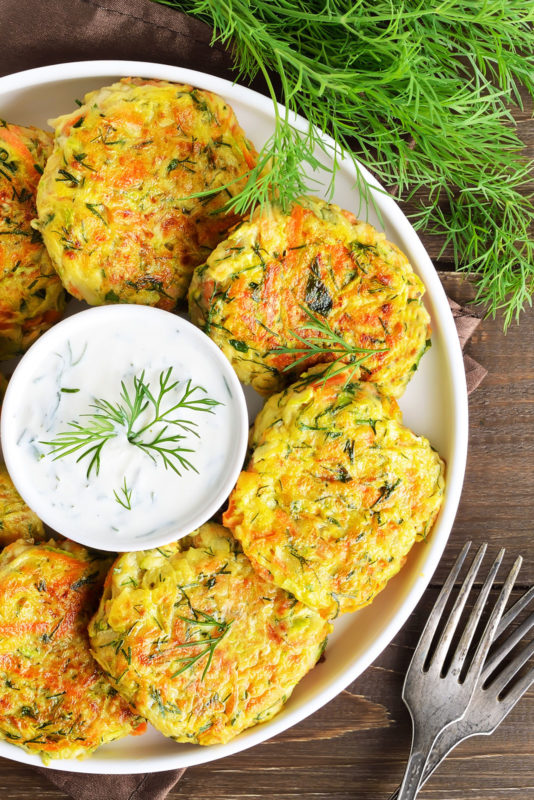
When used in hot sauces, soups, curries, and other hot dishes, add them at the very end of the cooking process. And I mean at the very end. I love to incorporate finely chopped fennel leaves into a dish right after I turn the heat off. Because fennel leaves are very thin and delicate, there is enough heat to process them, so they revive their flavor.
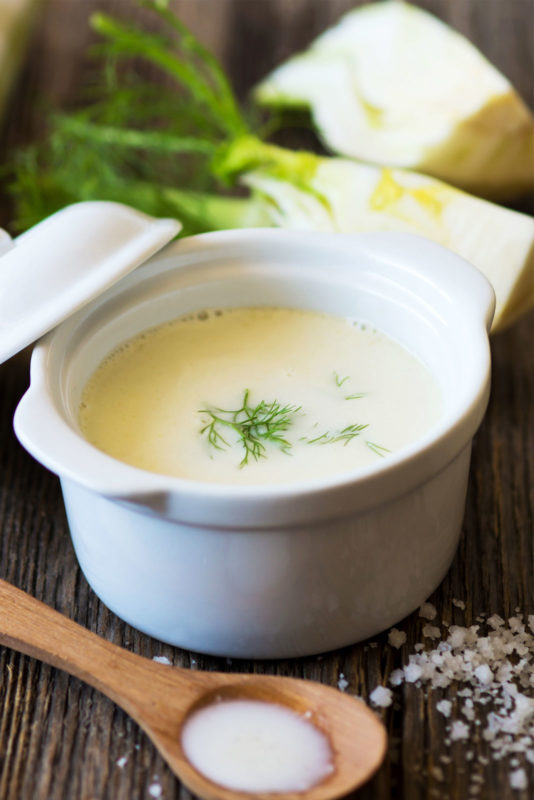
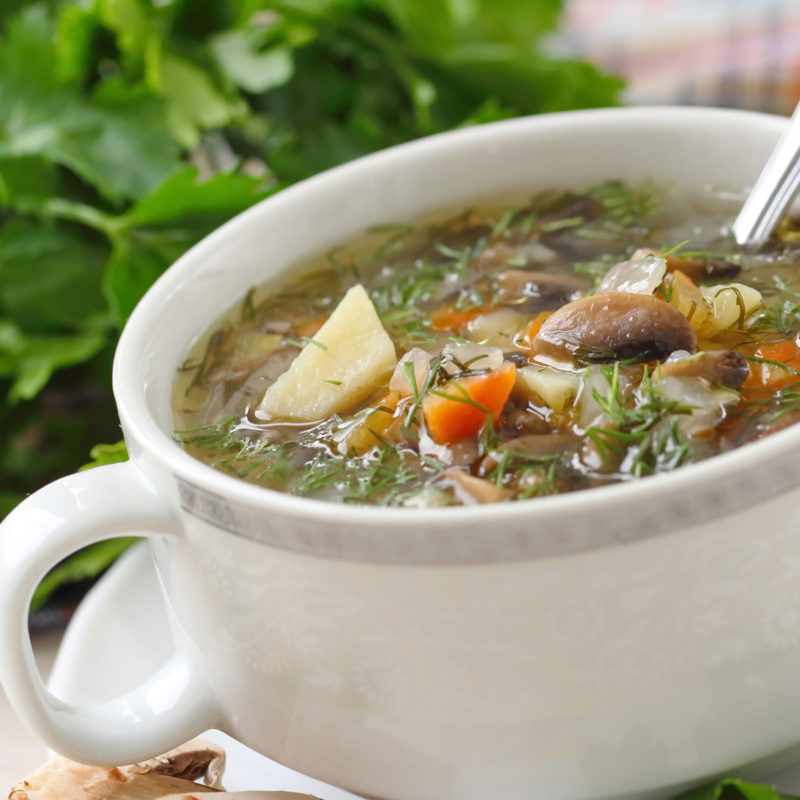
Substituting Onion with Bock Choy
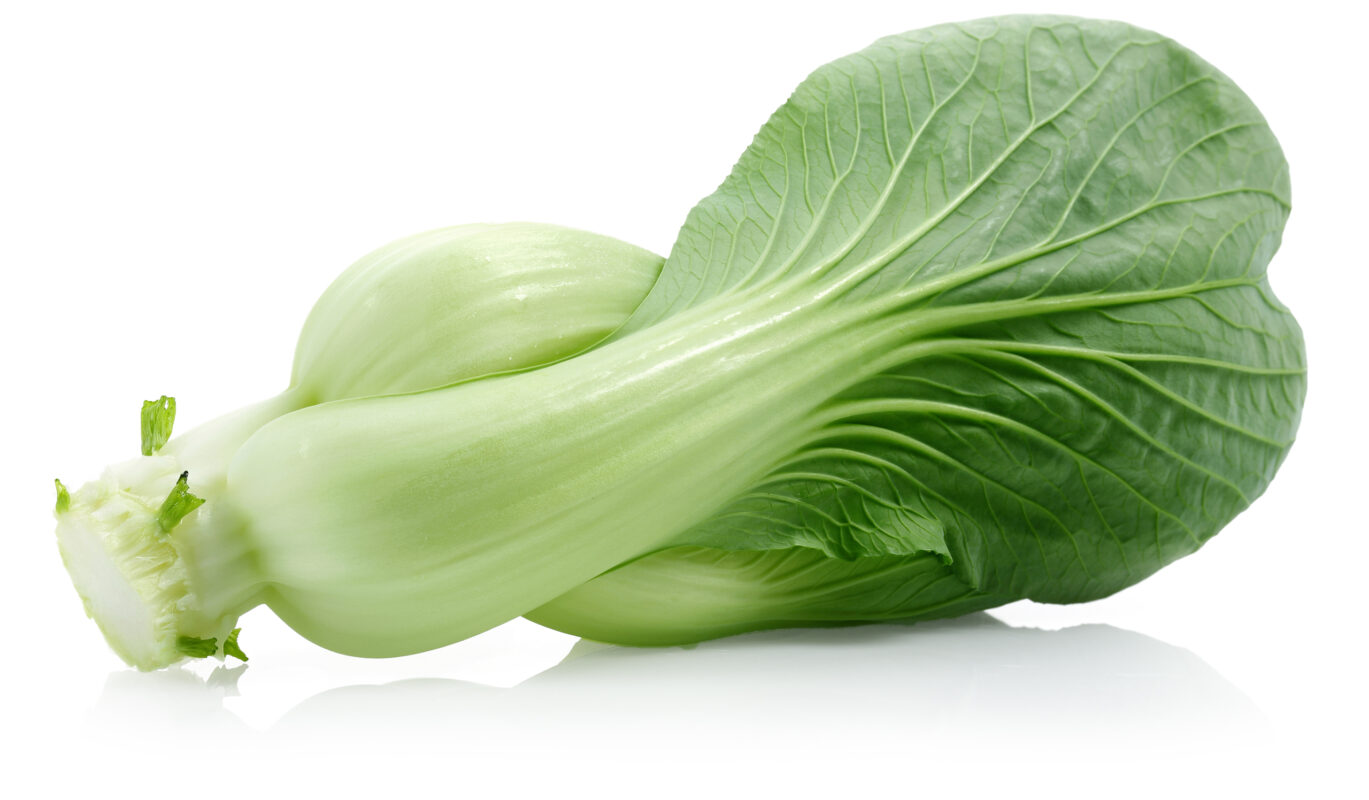
Bok choy is a variety of Chinese cabbage (Napa cabbage). It is very comparable to its older sister – Napa Cabbage, in preparation and uses. I found it milder in flavor but never the less a great onion substitute.
If the recipe calls for finely chopped onion, I prefer to use baby bok choy. It is perfect for incorporating as a part of the veggie burger, stuffed peppers (or other stuffed vegetable recipes).
The raw white parts of baby bok choy can be used as an onion substitute in salads, sandwiches, and other raw recipes. It is a perfect onion substitute that provides wholesome nutrients to your body without leaving you with stinky breath.
I prefer regular bok choy for soups, stews, fries, and baked vegetables. Because it is larger in size, it adds the necessary texture and volume to the dish.
Recipes in video:
Substituting Onion with Lemon Grass

Lemongrass adds a fresh lemony flavor to hot dishes and sauces. I love using it in soups, stews, stir-fries, and pasta dishes.
Lemongrass stalks have to be finely chopped into small ringlets resembling scallions. After which they can be incorporated into soups, stews, fries, and other hot recipes. Sometimes I add them to plain rice or buckwheat at the beginning of the cooking process.
Finely chopped lemongrass adds a lovely texture and fresh aroma to your dishes.
I’m growing my own lemongrass in pots. You can buy it in the local grocery stores or Asian markets.
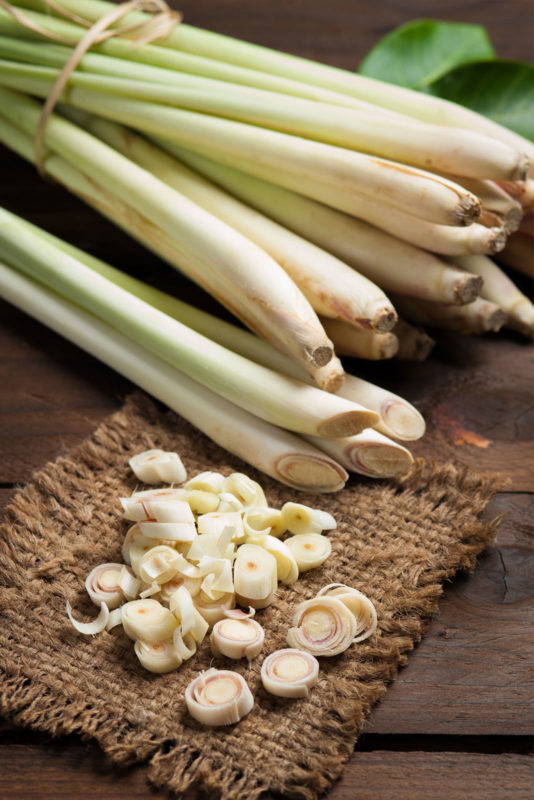
Which onion substitute do I use more often? Here’s how it goes in my kitchen:
Quinoa and rice – definitely finely cubed celery.
Soups, stews, and curries – a combination of finely cubed celery + bok choy (or Fennel); fennel stalks and leaves.
Veggie burgers, falafels, flatbreads – baby bok choy, fennel.
Be Alive 🌱,
❤ Love, Julia
Mindful Eating 🥢
GUIDED MEDITATIONS 💗
DISCLAIMER: The materials and the information contained on the Positive Pranic website are provided for general and educational purposes only and do not constitute any legal, medical, or other professional advice on any subject matter. None of the information on our videos is a substitute for a diagnosis and treatment by your health professional. Always seek the advice of your physician or other qualified health providers prior to starting any new diet or treatment and with any questions you may have regarding a medical condition. If you have or suspect that you have a medical problem, promptly contact your health care provider.


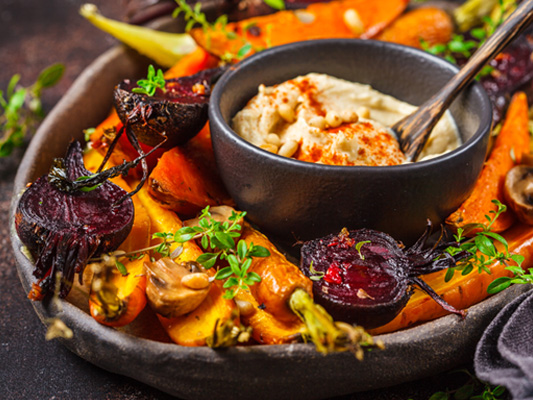







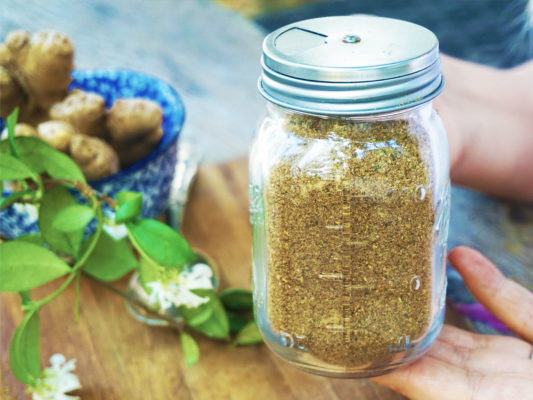
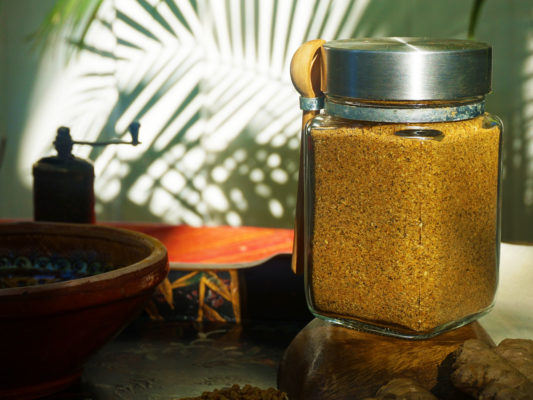
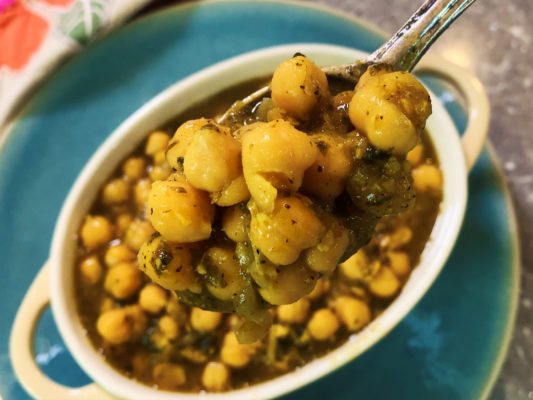
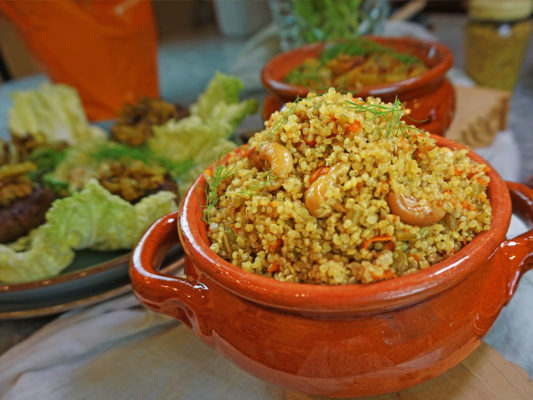
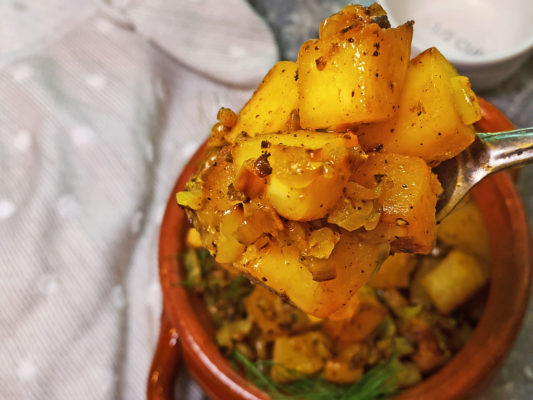
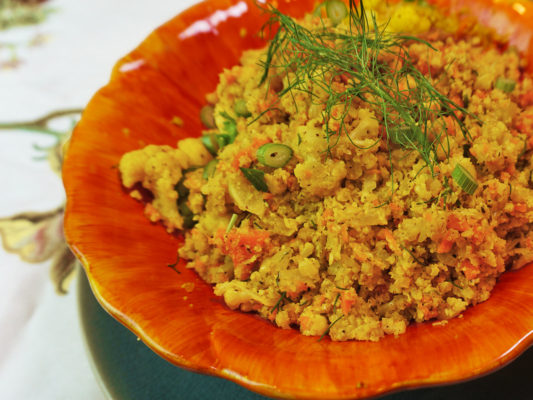
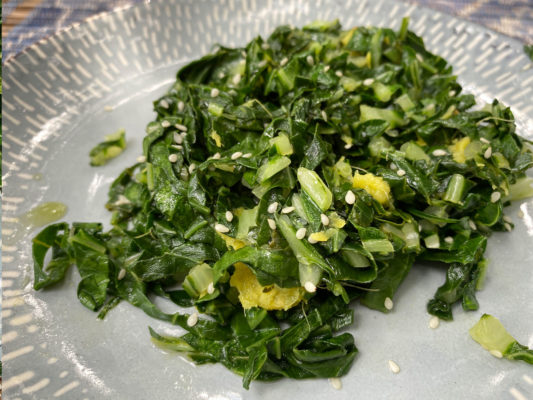
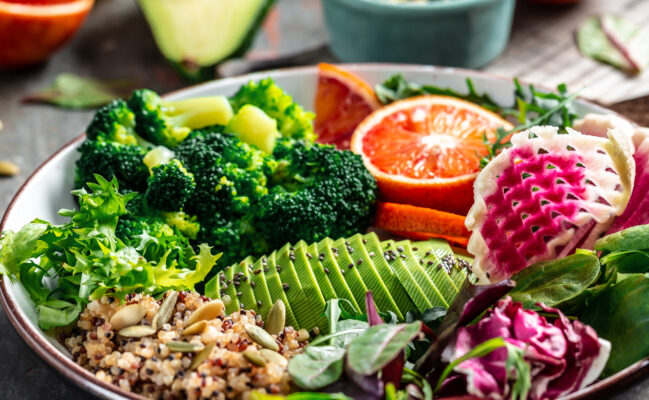
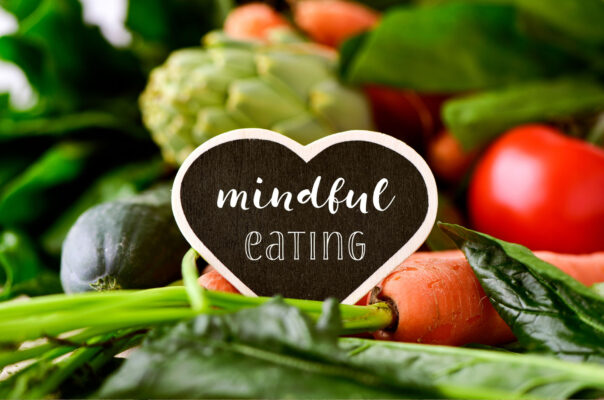


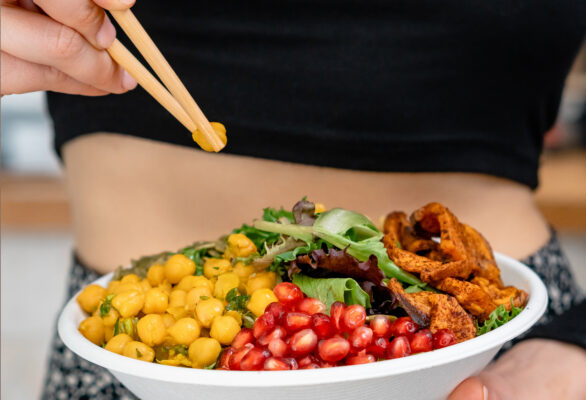
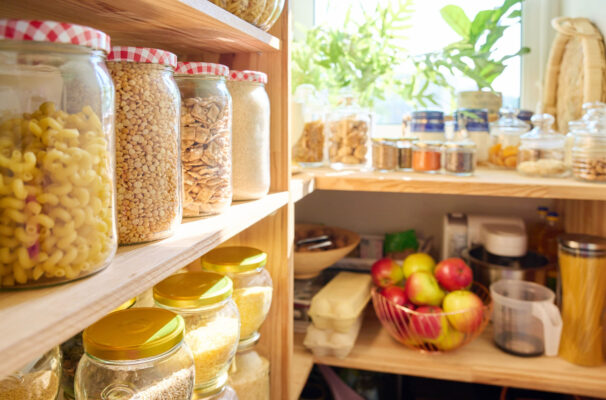
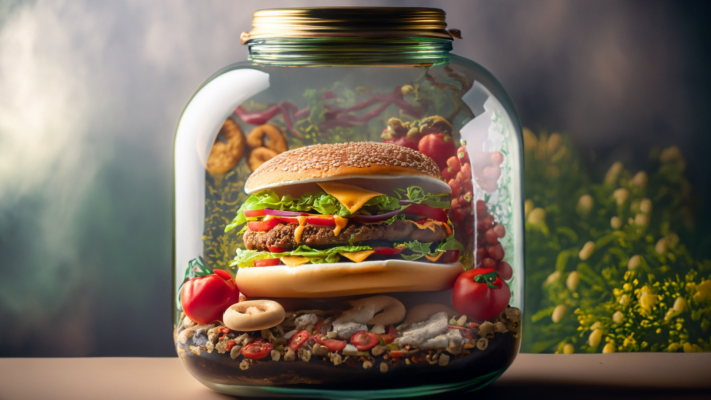


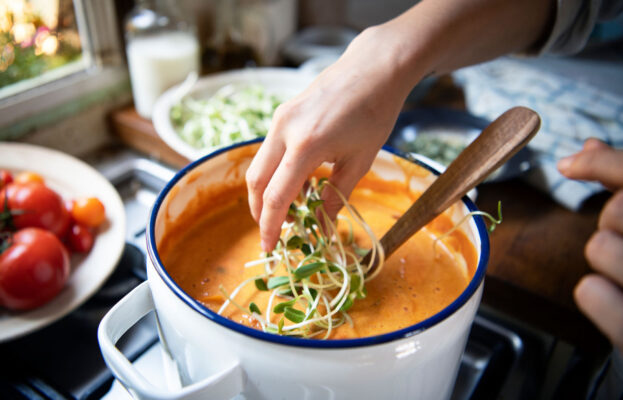
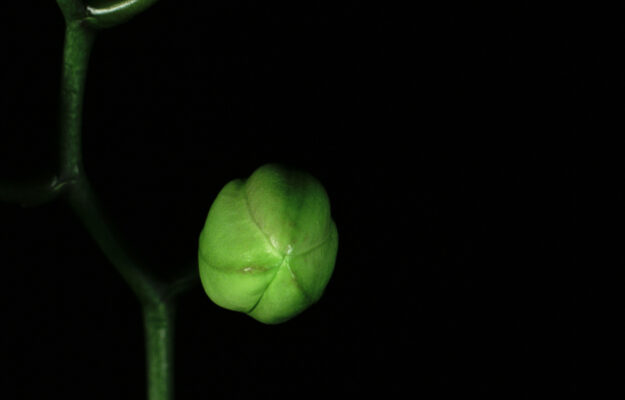







Hi Julia,I liked them a lot.I try to be a yogy and a good vegetarian cooker.I may learn a lot from you.Thank you.You are delicious. With love,Mihaela
Thank you so much dear. I appreciate you following along and your kind words. Thank you for your support. Best wishes and blessings to you. 🙏🌱🌺
Excellent inputs wrt positive puranic foods..
Thank you 🙏🏻🌱🌺
Hey Julia, thank you so much! … i was looking for substitutes for garlic and onions — to stay in a more sattvic diet. I am concerned about the nutritional value of garlic and onions though. (I understand both are very good for the blood circulation and/or the heart.) … are those alternatives also good for our hearts? (Or, since “we are soooo good with our sattvic diets” we should not worry so much about said nutritional concerns?! 😉 … please advise.
Thank you for sharing your thoughts on this touchy subject. 🙏🏻 A lot of people are trying to figure it out.
To make a short story long… 😁 I have this question.🤔
Nowadays, onions and garlic (in one form or another) are in most savory foods. They are in dressings, sauces, every dish in the freezer section, restaurants, and of course, most of the food prep at home starts with chopping onion and garlic. And, like that is not enough, 🤦🏼♀️ the supplements industry fearmongers people into taking additional doses via capsules or tablets. With this abundance of garlic in our diet, we should eliminate heart disease from the earth. But it is not so. 🤷🏼♀️ It is actually the opposite.
To me, it is certain that garlic and onion are very potent substances and are beneficial for health as a medicine, and should be approached as such. We are not taking medication every day, even though it can save our lives when needed. I made a video on this subject; I don’t know if you had a chance to see it.
https://www.youtube.com/watch?v=2rKi5qrz8mc&feature=youtu.be
❤ Love, Julia 🙏🏻🌱🌺
THANK YOU so much Julia. I want to thank you from the bottom of my heart. Your onion and garlic substitutes revolutionized the way that I cook and I’m so enabled now. Thank you thank you thank you. I made some fish curry using the chopped celery and bok choy as a substitute and sautéed them with your basic savory spice mix and it added perfectly!! Take care and can’t wait to see what more you post. 🙂
Oh, Kyle, you just made my day! Thank you so much for sharing your experience with me. 🙏🏻 It is absolutely wonderful! I’m so happy these onion and garlic substitutes amplified your cooking.
Sending lots of love your way 💞
loved all the videos and inspired.
I found this when I was trying to confirm my own instincts for substitutes. I’m on a Low-FODMAP diet after having my gut bacteria devastated by c-difficile. One of my family’s favorite recipes is a classic risotto milanese. In low-FODMAP, you can substitute the green part of scallions or chives for onions but it doesn’t create the all-important bite for risotto. I experimented and found the white part of baby bok choy was identical to white onion. In other recipes calling for onion, for example a marinara sauce, I substitute fennel. Thanks for your work to offer good substitutes!